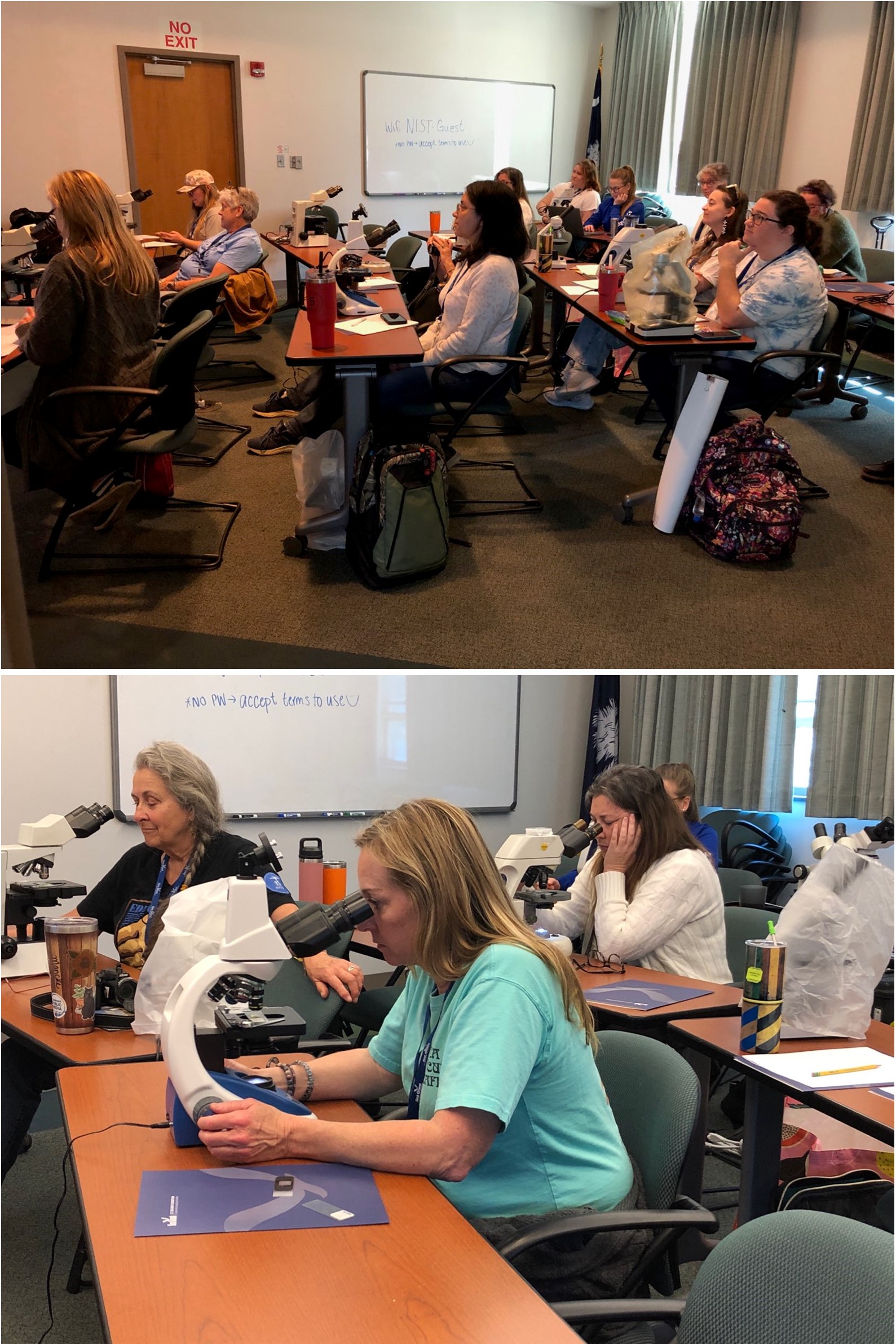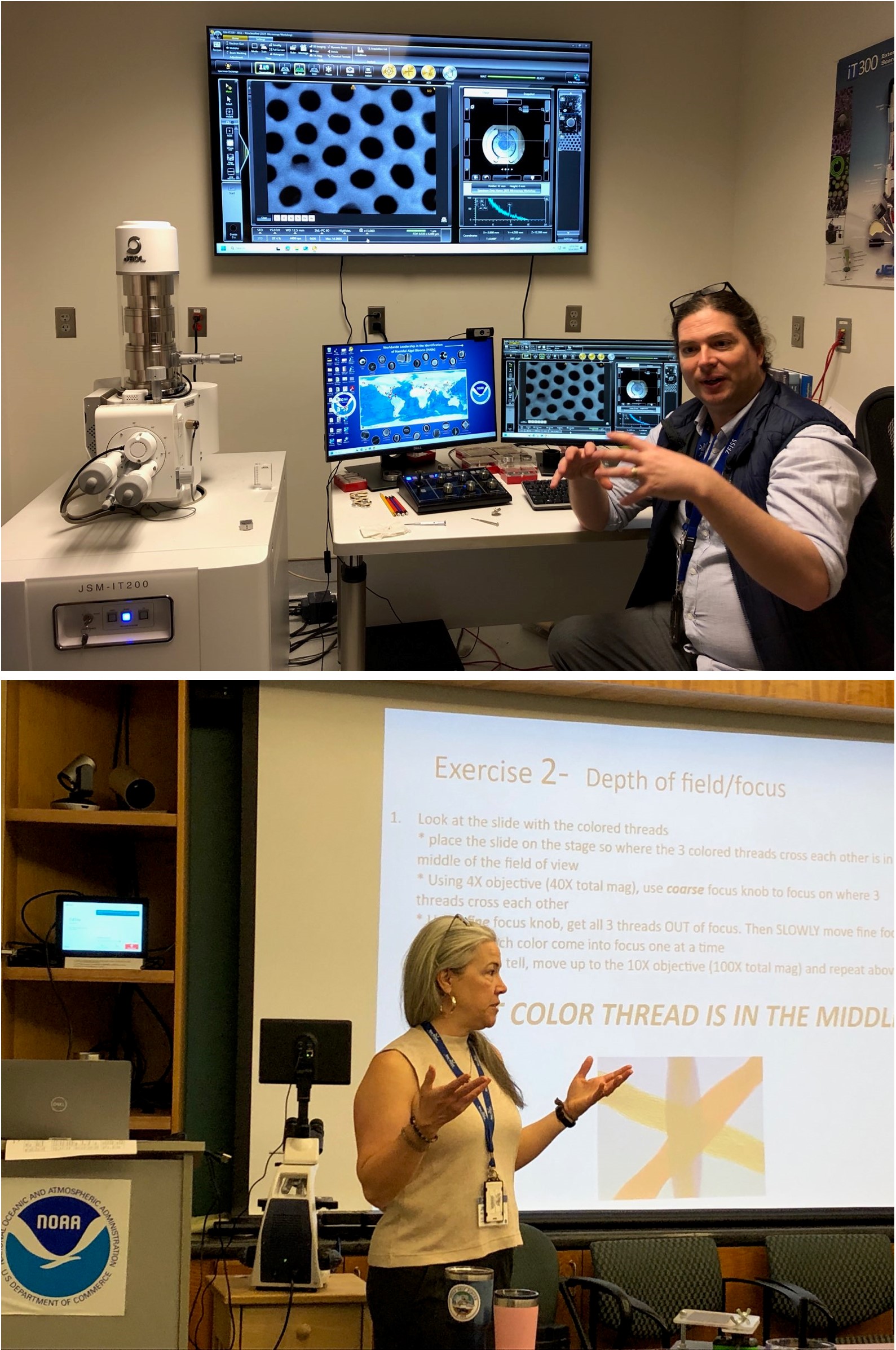

In partnership with South Carolina Sea Grant Consortium, scientists from NOAA’s National Centers for Coastal Ocean Science (NCCOS) hosted a one day microscopy workshop for middle and high school teachers as part of their continuing education training. Twenty teachers from Charleston, Berkeley, and Dorchester Counties attended the workshop for hands-on training to gain a better understanding of microscopes, from the basics to more advanced techniques.
During the workshop, NCCOS scientists from the National Phytoplankton Monitoring Network—a participatory science program involving volunteers nationwide to monitor marine phytoplankton and harmful algal blooms—trained teachers on key microscopy skills, including proper handling, focusing, light adjustments, and sample preparation, along with specialized methods like electron microscopy. Teachers also had the opportunity to examine slides and identify harmful algal bloom species found in South Carolina’s waters.
Teachers gained invaluable skills they can now take back to their classrooms and share with their students. The skills and knowledge gained from this training will be incorporated into the science curriculum throughout the tri-county area. By learning to identify microorganisms and other microscopic samples, teachers not only broaden their own scientific knowledge but also gain the tools to inspire curiosity in their students. These techniques, when integrated into classroom lessons, foster a greater appreciation for the microscopic world, enabling students to explore STEM fields in a more engaging and interactive way.
In addition to the skills built and knowledge gained from the training, the team gave teachers cleaning kits and instructions to maintain their microscopes to achieve maximum resolution.
Work from NOAA’s National Phytoplankton Monitoring Network is authorized by the Harmful Algal Bloom and Hypoxia Research Control Act, 33 U.S.C. §§ 4001 et seq, which authorizes NOAA to detect and monitor harmful algae.
